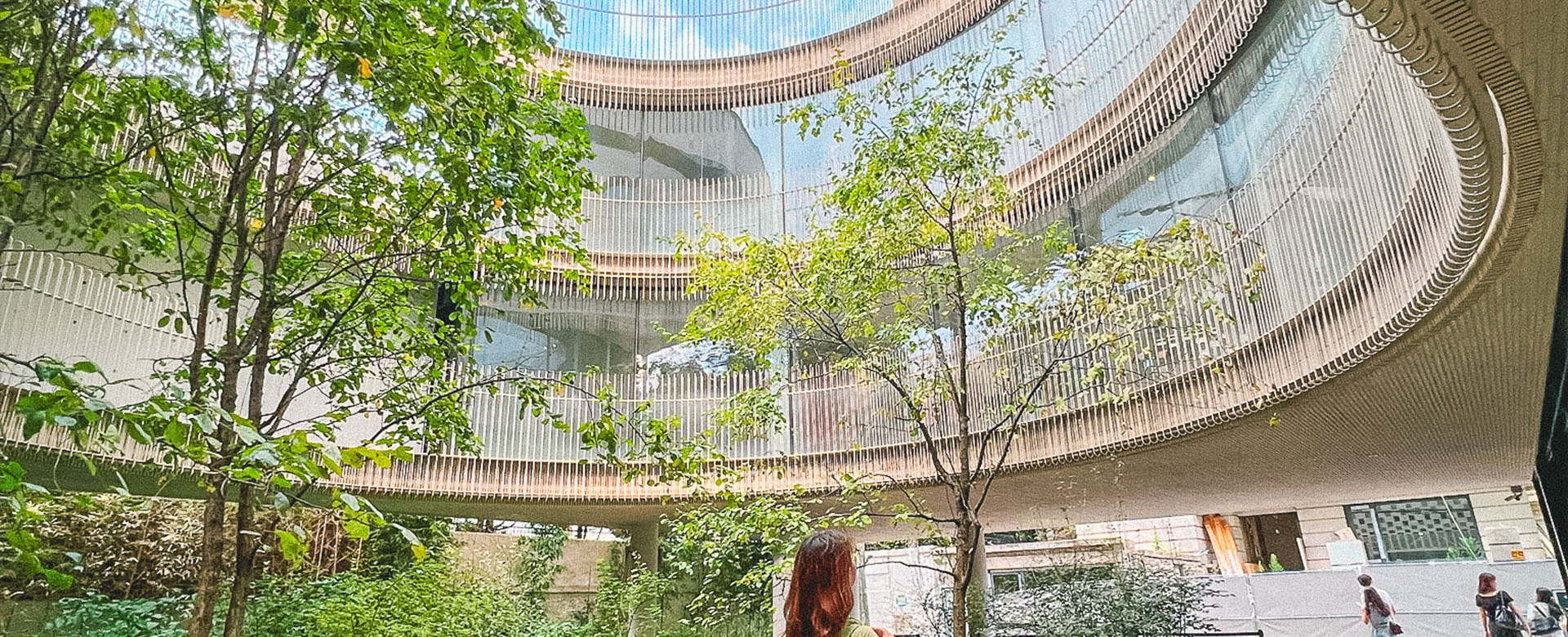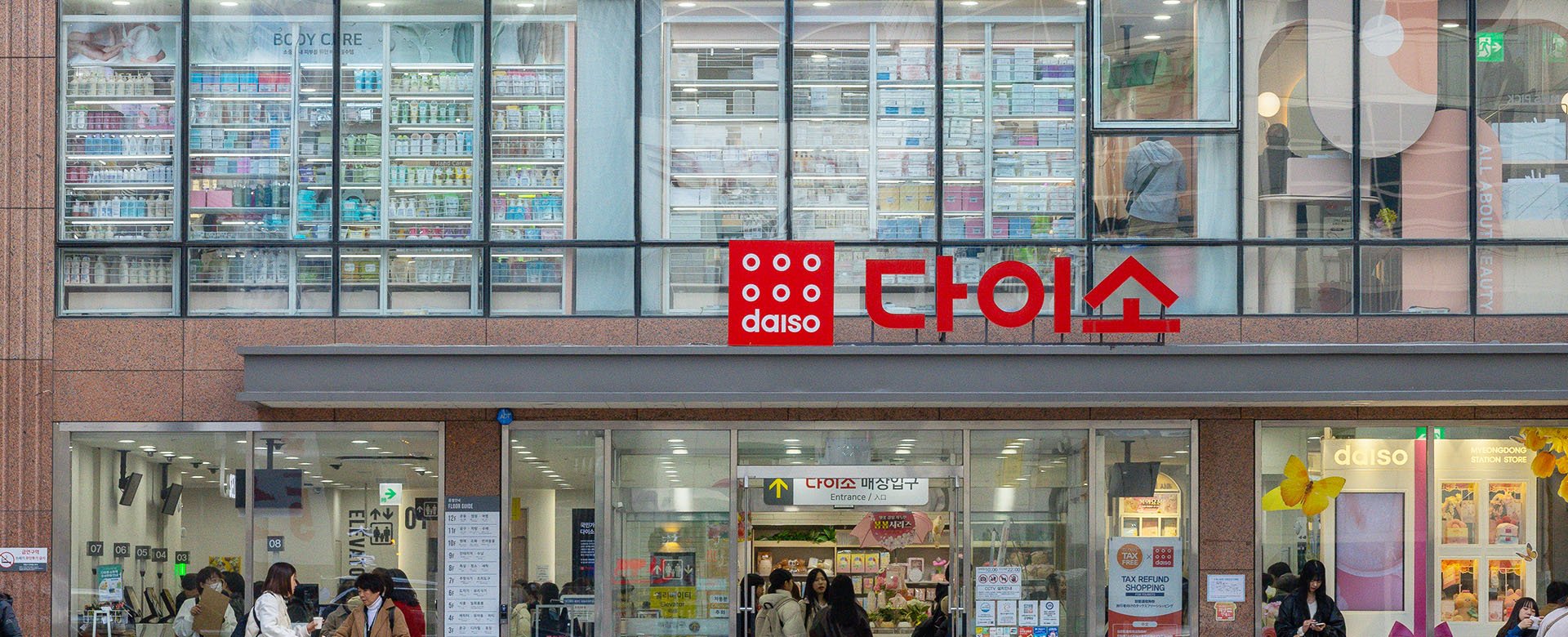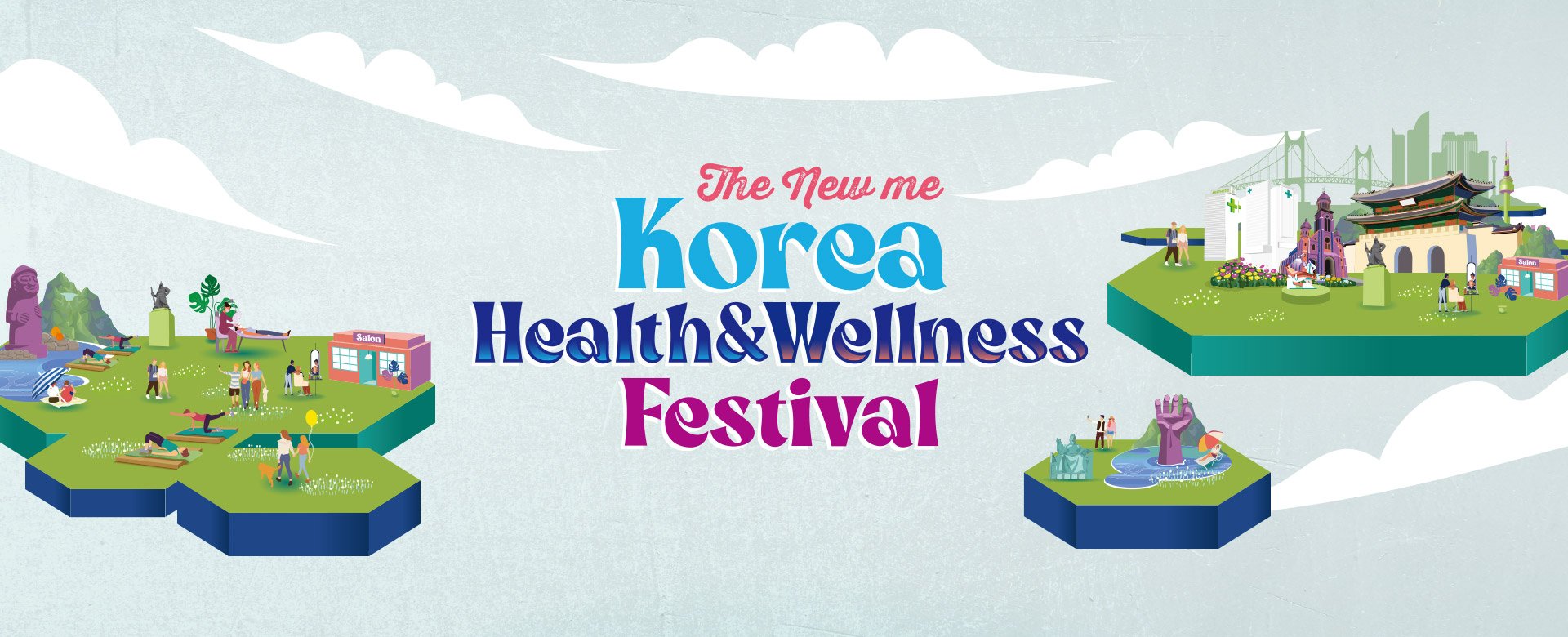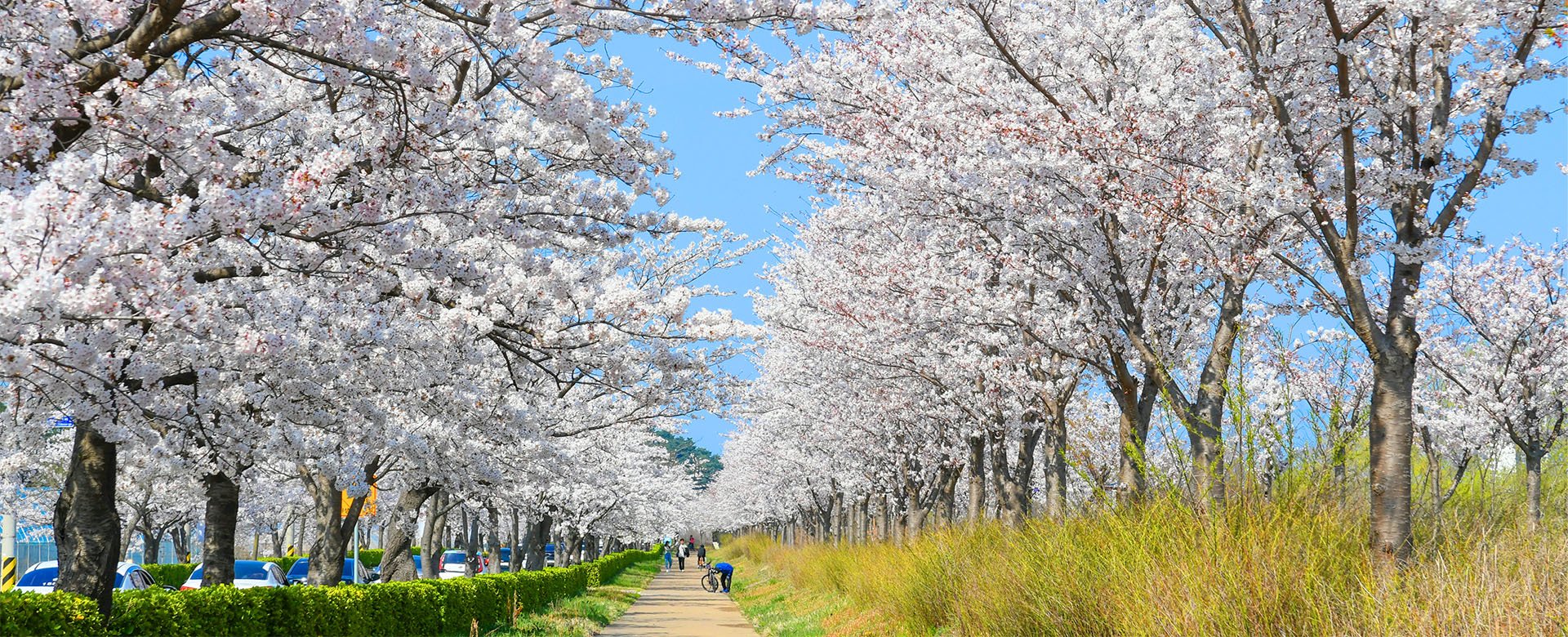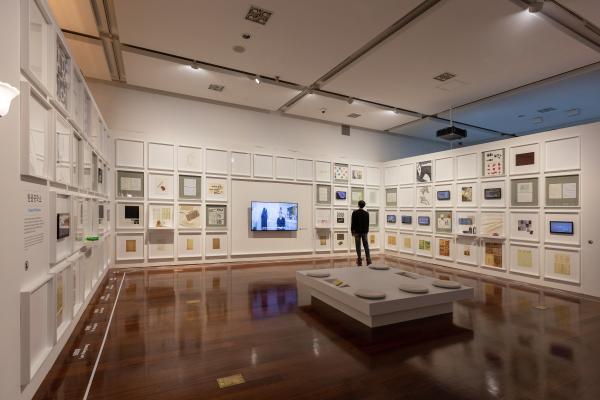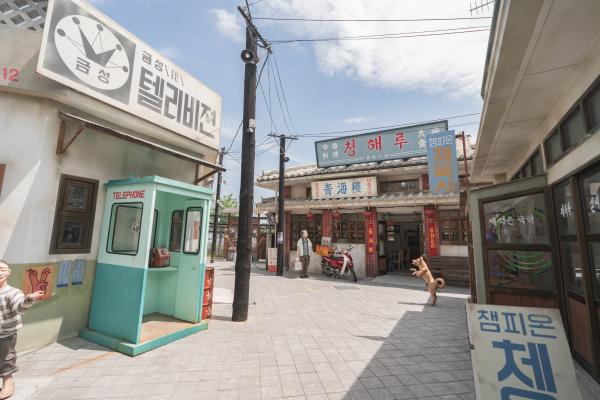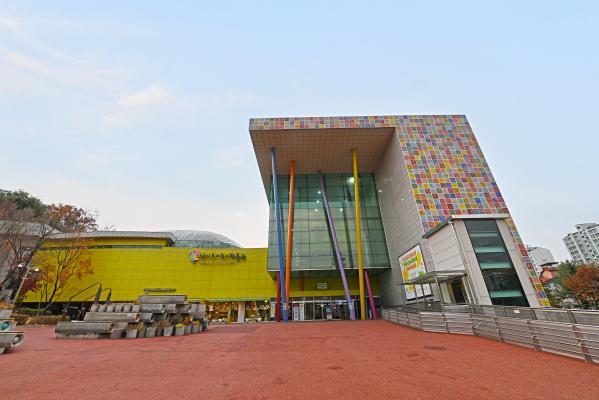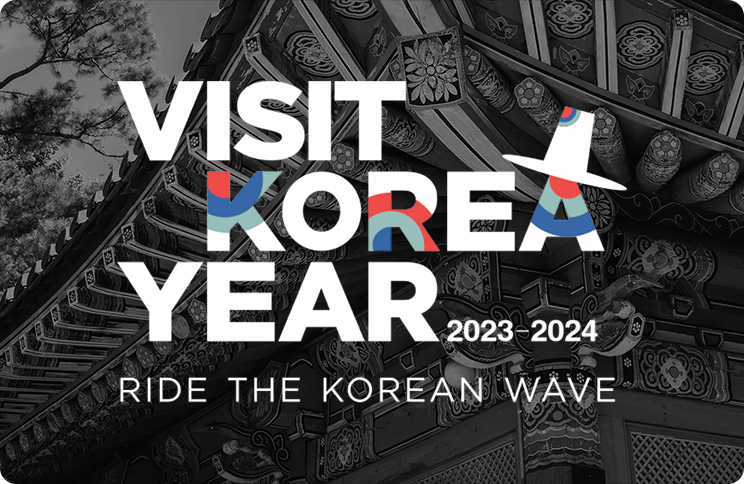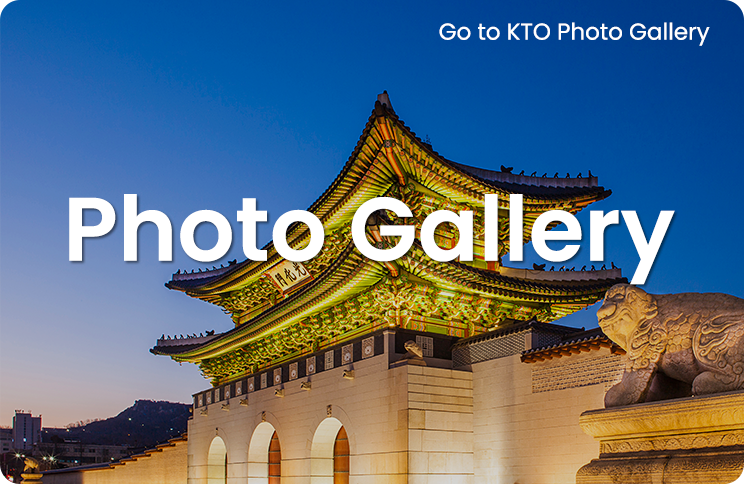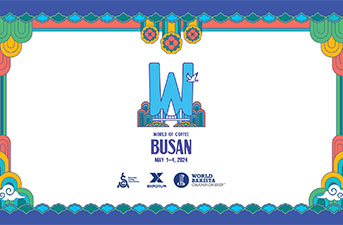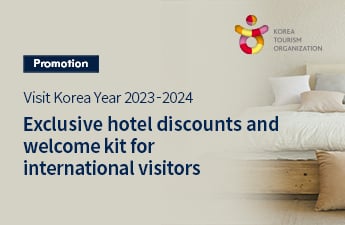- SEOUL
- 22 °C / 11 °C
News & Announcement
-
![[Winners Announcement] 2024 World Barista Championship Ticket Giveaway Event](/public/images/2024/04/24/46aa5825c4c34075a00b244051950038.jpeg)
[Winners Announcement] 2024 World Barista Championship Ticket Giveaway Event
Thank you to everyone who participated in the 2024 World Barista Championship Ticket Giveaway Event and congratulations to the winners! * Period: April 8-21, 2024 * Winner announcement: April 24, 2024 * Prize: 2 one-day tickets to the World Barista Championship (20 winners) See below for the event winners: * Tickets will be sent to the winners and their companion through the e-mail addresses entered during event submission. * ID check required on-site to enter event hall (must have passport) * Ticket is a one-day ticket only, providing admission for one day during the event period. Notices * VISITKOREA is not responsible for failure to deliver prize in the case of an inactive email account or the mail being marked as spam. * Ticket transfer and/or resale not available. dix*****[email protected] sha**********[email protected] oku********[email protected] art********[email protected] yuj****[email protected] w96****[email protected] sel******[email protected] tur*****[email protected] myp******[email protected] kan*******[email protected] hit*****[email protected] zha****************[email protected] vao***[email protected] sao******[email protected] luc*********[email protected] sec******************[email protected] wow***[email protected] cho**************[email protected] lot*****[email protected] kan*****[email protected]
04/24/2024
-

Danjong Culture Festival This Weekend in Yeongwol
Yeongwol, in Gangwon State, hosts the Danjong Culture Festival in honor of Danjong, the 6th king of the Joseon dynasty who was exiled to the area. The festival will take place April 26-28 in the area around the final resting place of King Danjong, Jangneung Royal Tomb . The festival aims to promote the rich history and culture of the area. This year’s festival features a range of events in the theme of the unchanging love of Queen Jeongsun, Danjong’s wife. Visitors can enjoy artistic performances, a flea market, quiz shows, a parade, drone light show, fireworks show, and more. Events sure to interest international visitors include many cultural programs such as playing traditional games, making a good-luck pouch, writing a wish sheet, and trying a traditional hunting experience. The food booths are expected to offer many local foods, such as ttukbaegi bulgogi (bulgogi hot pot), tteokgalbi (grilled galbi patties), and olchaengi guksu (corn starch noodles). To further explore the beauty of Yeongwol, consider adding a stop at Yeongwol Tourism Center, the Donggang River , or Cheongnyeongpo Scenic Spot after visiting the festival. Danjong Culture Festival Period: April 26-28, 2024 / 10:00-19:30 Venues: Jangneung Royal Tomb , Gwanpungheon House, Donggang Riverside, Yeongwol Culture & Arts Center Inquiries: Yeongwol Culture & Tourism Organization +82-33-375-6353 / Instagram @yctf_official
04/23/2024
-
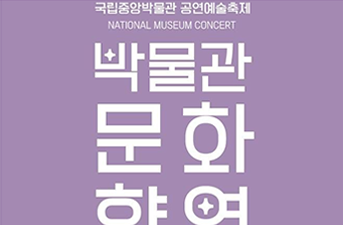
Spring Festivals around Seoul Landmarks
Spring has arrived in Seoul, with events taking place throughout the city. The spring events kicked off in March with the Cherry Blossom Festival at Seokcheonhosu Lake , followed by festivals taking place at landmark locations throughout the city, including the Hangang River, Gwanghwamun Gate , and Gyeongbokgung Palace . Particularly interesting festivals include the Car-free Jamsugyo Bridge Ttubeokttubeok Festival, featuring a mute DJ party where all participants listen to the music through headsets; and musical performances in a range of genre as part of the National Museum Concert series. Other upcoming events include the ever-popular annual nighttime admission to Seoul’s royal palaces, Seoraeseom Island Canola Flower Festival, and Seoul Festa. Attending any one of these events this spring is sure to make your time in Korea even more special! 2024 Nighttime Admission to Royal Palaces Enjoy a starlit walk through the royal palaces Related news: Royal Palaces more Beautiful by Night Gyeongbokgung Palace - Period: All year round (Closed Tuesdays) - Operating hours: 19:00-21:00 (Last admission 20:30) - Admission fee: 3,000 won (200 tickets available for foreigners on-site) - Website: https://royal.cha.go.kr/ENG/contents/E101010000.do Deoksugung Palace - Period: All year round (Closed Mondays) - Operating hours: 09:00-21:00 - Admission fee: 1,000 won (Free for visitors ages 18 and younger, 65 and older, and all visitors wearing hanbok) - Website: https://royal.cha.go.kr/ENG/contents/E104010000.do Changgyeonggung Palace -Period: All year round (Closed Mondays) - Operating hours: 09:00~21:00 (Last admission 20:00) - Admission fee: 1,000원 (Free for visitors ages 6 and younger, 65 and older, and all visitors wearing hanbok) - Website: https://royal.cha.go.kr/ENG/contents/E103010000.do 2024 National Museum Concert Series Saturday culture festival open to all - Period: April 13 – November 23, 2024 / Saturdays 15:00 - Venue: National Museum of Korea, 137 Seobinggo-ro, Yongsan-gu, Seoul (서울특별시 용산구 서빙고로 137) - Website: www.nmf.or.kr/enguser/main/main.do - Major programs: HANBIT Chamber Orchestra (April 27), Seoul Orchestra (May 25), National Gugak Center Folk Music Group (June 15) Seoul Festa K-culture festival full of food, fun, and dancing throughout the city - Period: May 1-6, 2024 - Venues: Seoul Plaza, Gwanghwamun Plaza, Noeul Park, etc - Instagram: @seoulfesta_official - Major programs: Opening ceremony at Seoul Plaza (May 1), Roadshow & Artist Collab Stage at Gwanghwamun Plaza (May 4), K-barbecue at Noeul Park, etc. Car-free Jamsugyo Bridge Ttubeokttubeok Festival Enjoy performances and food on Jamsugyo Bridge - Period: May 5 – June 23, 2024 / September 1 – October 27, 2024 - Festival hours: Sundays 12:00-21:00 (Road block 11:00-23:00) - Venue: Area of Banpo Hangang Park & Jamsugyo Bridge in Seocho-gu, Seoul Hangang Seoraeseom Island Canola Flower Festival Spring festival full of photo spots - Period: May 10-19, 2024 (Dates subject to change depending on bloom timing) - Venue: Seoraeseom Island in Banpo Hangang Park, Seocho-gu, Seoul Gwanghwamun Food Market K-food festival designed like a night market - Period: May 2024 – May 2025 (Schedule TBA) - Operating hours: Wednesday-Sunday 16:00-21:00 - Venue: Sejong-ro Park & Gwanghwamun Plaza, Jongno-gu, Seoul
04/15/2024
-
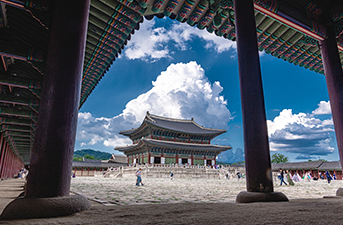
Free Pass to Seoul’s Royal Palaces
In connection with the upcoming K-Royal Culture Festival , the K-Royal Palaces PASS is being released to allow unlimited admission to Seoul’s five royal palaces throughout the festival period. The K-Royal Culture Festival showcases Korea’s representative cultural assets, and is held twice a year in both spring and fall at Seoul’s five major royal palaces ( Gyeongbokgung Palace , Changdeokgung Palace , Deoksugung Palace , Changgyeonggung Palace , Gyeonghuigung Palace ) and Jongmyo Shrine . This year marks the tenth anniversary of the festival and is expected to be better than ever, with more programs and the addition of a global reservation system. K-Royal Palaces PASS-holders can enjoy unlimited access to the K-Royal Culture Festival venues and experience a range of events from performances to exhibitions, hands-on programs, reenactments, and more. However, please note that the pass does not allow access to the special ticketed events of Gyeongbokgung Palace Special Evening Admission or Changdeokgung Palace’s Secret Garden. The K-Royal Palaces PASS is available for purchase on major travel platforms. The pass also acts as a transportation card and offers a 10% discount at KHmall off-line stores and Korea House ; and a 30% discount on tickets to the musical “The Tribe,” taking place at Sejong Center . K-Royal Culture Festival K-Royal Palaces PASS Valid period: April 27 – May 5, 2024 Sales period: March 18 – April 25, 2024 Price: 10,000 won Sales locations: Klook, KKday, Seoul Travel Pass, Trippose, Get Your Guide, Trazy Pick-up period: April 27 – May 5, 2024 / 10:00-17:00 Pick-up locations: Incheon International Airport Terminal 1, K-Royal Culture Festival information booth at Gyeongbokgung Palace (available at information booth of other palaces as well) Pick-up process: Show K-Royal Palaces PASS mobile ticket (QR code) to receive the K-Royal Palaces PASS (only required the first time) Website: www.chf.or.kr
04/09/2024
-
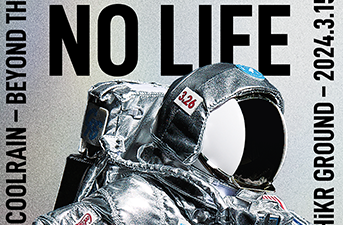
Welcome to the World of K-Art Toy
Korea Tourism Organization’s HiKR Ground is hosting a special exhibition for Korea’s representative art toy designer, Coolrain (Lee Chanwoo), titled “NO TOY, NO LIFE: Beyond the Limits.” The exhibit was designed in connection with the 2023-2024 VISIT KOREA YEAR, and is filled with art toys sure to catch the eye of young people visiting Korea, such as major hallyu stars like BTS, Dynamic Duo, and xikers, as well as collaborations with global brands like Nike. One special art toy sure to catch all visitors’ eyes is the HiKR Pot Ball, a unique character made exclusively for HiKR Ground. Meant to resemble a large ball capable of holding a range of objets d’art, visitors can see a 4-meter tall HiKR Pot Ball balloon on display outside HiKR Ground. During the exhibition period, visitors can also make their very own art toy through the experience program (two sessions; schedule TBD), filling their own HiKR Pot Ball with all the charms of Korea. NO TOY, NO LIFE: Beyond the Limits Period: March 15 – May 12, 2024 / 10:00-19:00 (Closed Mondays) Venue: HiKR Ground 1F & 3F, 40 Cheonggyecheon-ro, Jung-gu, Seoul (서울특별시 중구 청계천로 40) Admission fee: Free Exhibition text: Korean, English Exhibition details - 1F: Large-sized HiKR Pot Ball balloon, HiKR Wall, HiKR Tower - 3F: Art Toy exhibition
04/02/2024
-

Royal Palaces More Beautiful by Night
Korea’s royal palaces, full of charm at any time of day, are even more beautiful when viewed at night. The official evening programs for spring are starting up soon, with special guided tours taking place at Gyeongbokgung Palace , Changdeokgung Palace , and Deoksugung Palace . The Gyeongbokgung Palace Special Evening Admission program is popular among Koreans and foreigners alike for offering a chance to taste a recreation of Doseuksurasang, a table set for the king with 12 different dishes. At the Deoksugung Palace program, Night at Seokjojeon Hall, taste coffee and desserts enjoyed by Emporer Gojong while watching an original musical. For visitors unable to snag tickets to these highly sought-after programs, you can still enjoy the palaces at night through regular evening hours, taking place at Gyeongbokgung Palace, Deoksugung Palace, Changgyeonggung Palace, and the Temporary Palace at Hwaseong Fortress. Tickets for these hours are available on-site. Gyeongbokgung Palace [ Gyeongbokgung Palace Special Evening Admission ] Period: April 3 – May 4, 2024 / Admission period for foreigners May 2-4, 2024 Ticket reservations: Open April 1, 2024 at 09:00 (Site will close when sold out) Admission times: Session 1 - 18:40 / Session 2 - 19:40 (each session lasts 110 minutes) Ticket price: 60,000 won (Limited to two tickets per person) Website: www.chf.or.kr Reservations (Creatrip): creatrip.com/en Inquiries (Creatrip): +82-70-4327-2310 [Evening Hours] Period: TBA (Closed Tuesdays) Operating hours: 19:00-21:00 (Last admission 20:30) Admission fee: 3,000 won (200 on-site tickets available for foreigners) Website: royal.cha.go.kr Changdeokgung Palace Complex [ Moonlight Tour at Changdeokgung Palace ] Period: April 11 – June 2, 2024 / Admission period for foreigners April 27-28 & May 2-3, 2024 Ticket reservations: Open April 1, 2024 at 09:00 (Site will close when sold out) Admission times: Session 1 - 19:20, 19:25, 19:30 / Session 2 - 20:00, 20:05, 20:10 (each session lasts 110 minutes) Ticket price: 30,000 won (Limited to two tickets per person) Website: www.chf.or.kr Reservations (Creatrip): creatrip.com/en Inquiries (Creatrip): +82-70-4327-2310 Deoksugung Palace [Seokjojeon at Night] Period: April 16 – May 25, 2024 / Admission period for foreigners May 1-3, 2024 Ticket reservations: Open April 1, 2024 at 09:00 (Site will close when sold out) Admission times: Session 1 - 18:20 / Session 2 - 18:50 / Session 3 – 19:25 (each session lasts 90 minutes) Ticket price: 26,000 won (Limited to two tickets per person) Website: www.chf.or.kr Reservations (Creatrip): creatrip.com/en Inquiries (Creatrip): +82-70-4327-2310 [Evening Hours] Period: All year round (Closed Mondays) Operating hours: 09:00-21:00 (Last admission 20:00) Admission fee: 1,000 won / Free for visitors ages 18 & under, 65 & older, and all visitors wearing hanbok Website: royal.cha.go.kr Changgyeonggung Palace [Night Hours] Period: All year round (Closed Mondays) Operating hours: 09:00-21:00 (Last admission 20:00) Admission fee: 1,000 won / Free for visitors ages 18 & under, 65 & older, and all visitors wearing hanbok Website: royal.cha.go.kr Temporary Palace at Hwaseong Fortress [Evening Program Moonlight Conversations] Period: May 3 – October 27, 2024 / Friday-Sunday Operating hours: 18:00-21:30 (Last admission 21:00) Admission fee: 1,500 won / Free for visitors ages 6 & under, 65 & older, and all visitors wearing hanbok Website: www.swcf.or.kr
03/29/2024

Travel Highlights
-
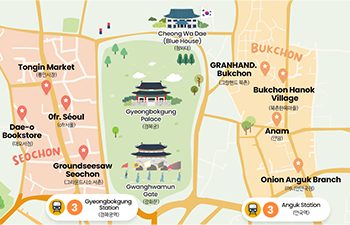
Explore the Surroundings of Gyeongbokgung Palace in Hanbok
Gyeongbokgung Palace is one of the most recognizable cultural heritage and tourist sites in Korea. Once a palace where the kings of the Joseon dynasty resided and ruled the kingdom, its shining prese
04/15/2024
-
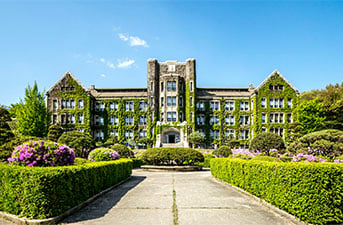
Korean Language Programs and Studying Abroad in Korea
If you are seeking to learn the Korean language or already an avid learner, there’s no better way to improve your Korean skills than living in the country native to the language – Korea! For those in
04/11/2024
-
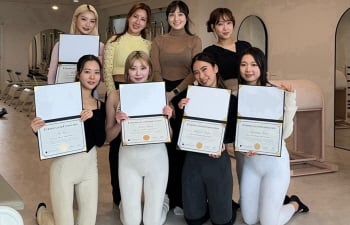
Her Dream Fulfilled: A Working Holiday in Korea, a Country Remarkably Similar to Japan!
An increasing number of young adults around the world are embracing Korean culture and language, inspired by the Korean Wave, which encompasses K-pop, K-drama, K-beauty, and K-fashion. Korea is known
04/23/2024
-
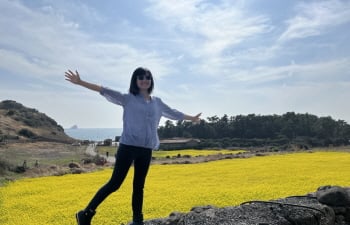
Embracing Life in Korea: A Working Holiday as a Path to Learning Korean
An increasing number of young adults around the world are embracing Korean culture and language, inspired by the Korean Wave, which encompasses K-pop, K-drama, K-beauty, and K-fashion. Korea is known
04/23/2024


